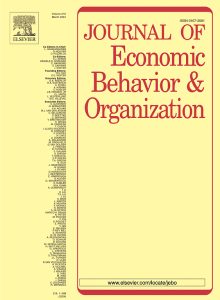Endogenous language use and patience
Keller Tamás – Kiss Hubert János – Szakál Péter
Journal of Economic Behavior & Organization
Highlights
We study if endogenous language use correlates with patience.
We develop a sentence-completion task to elicit endogenous language use.
We use four samples to test if a relationship exists.
We find no association in any of the samples.
Abstract
The linguistic-savings hypothesis posits that the grammatical marking of future events in languages is linked to future-oriented behavior. Recent experimental studies have suggested patience as a possible mechanism connecting language use and future-oriented behavior by exogenously manipulating what language is used. Our paper explores the association between patience and the language that people naturally use, thereby building on endogenous (as opposed to exogenously manipulated) language use. To capture natural language usage, we utilized a novel sentence-completion task designed for native speakers of the Hungarian language. This language allows for referencing future events through both present and future tenses.

We hypothesized a positive correlation between being patient and using the present tense to refer to future events.We conducted incentivized and non-incentivized experiments with four independent samples of high school and university students, involving nearly 3,500 students in total. We find no consistent evidence that patience is correlated with endogenous future-time reference. Our null finding is further supported by a robustness check that leverages specific randomness in our data.
Keywords: Future-time reference, Intertemporal choice, Languages, Linguistic-savings hypothesis, Patience, Time preference
JEL classification: C90, D01, D90, Z13



